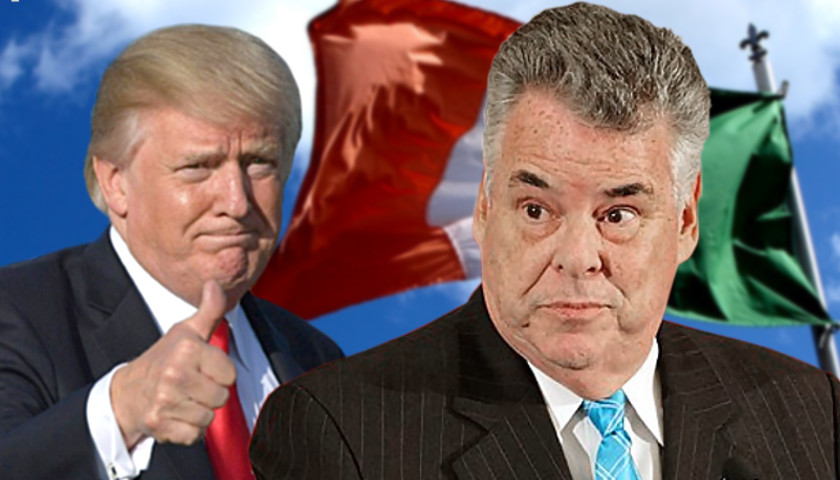With Britain deadlocked on negotiating its divorce from the European Union, an unexpected side-front is emerging, the U.S. Congress.
Conservatives who pushed the June 2016 referendum that ended in the shock decision to leave the 28-member bloc dangled the prospect of a free trade agreement with the United States as proof that Britain would not be isolated.
But while nationalist-minded President Donald Trump has welcomed Brexit, the main hitch to Britain’s exit has raised alarm among key U.S. lawmakers — the prospect of the return of a physical border that divides Ireland.
The elimination of the border between the Republic of Ireland and British-ruled Northern Ireland was a key component of the Good Friday agreement of 1998, brokered with the United States and made possible through the fruition of the integrated EU, which largely ended three decades of conflict that killed around 3,500 people.
Unified Ireland
Representative Peter King, long one of the highest-profile supporters in Congress of a unified Ireland, warned at a recent event in Washington that the direction of Brexit would be critical to any future U.S. trade deal.
“It’s important for we, as Irish Americans, to make clear when we deal with the British that this is very, very important to us,” he said.
“And if the British want to consider any type of trade agreement with the United States, it’s important that a soft border be maintained.”
While King is a Republican, his stance has appeared to gain steam since the Democrats won control of the House of Representatives in November because of the party’s historic Irish base and its generally more skeptical take on free trade.
Representative Richard Neal, a co-chairman of the Friends of Ireland Caucus who has voiced unease about Brexit’s effects, has taken charge of the powerful tax-writing House Ways and Means Committee, which will review any trade deal.
Eleven lawmakers led by a Democrat recently introduced a resolution that would state the House of Representatives’ opposition to a hard border in Ireland.
Worries politely rebuffed
Daniel Dalton, a British Conservative member of the European parliament who visited Washington for talks with U.S. lawmakers, voiced concern that the Irish question could hold up a U.S.-Britain trade agreement.
He rebuffed, ever politely, U.S lawmakers’ worries on Ireland, saying that nobody was out to end the Good Friday agreement.
“I think the worry is a little bit that there might be an assumption from people here and that they jump into a discussion on what is a hugely complex issue when there is no will from London or from Dublin to have a hard border,” Dalton told AFP.
“That is a point that we have to make time and time again,” he said.
“The issue is how do we ensure that the Good Friday agreement isn’t accidentally breached, which is a very different position to start off from,” he added.
Brexit day March 29
Britain is set to leave the European Union on March 29, with Prime Minister Theresa May scrambling to seek changes after the House of Commons overwhelmingly rejected her divorce deal negotiated with the EU.
May has given MPs the option to delay Brexit and the opposition Labour Party has supported a fresh referendum.
Dalton said that the possibility of a U.S.-Britain trade agreement played “a very big psychological role” for Brexit voters, seeing as Washington has not been able to seal a deal with the EU as a whole.
A major issue, Dalton said, will be seeing whether post-Brexit Britain gravitates toward U.S. or EU standards on agriculture and manufacturing, crucial in sealing a trade pact.
For Dalton himself, the results of Brexit will not be abstract: He will be out of a job.
And the European lawmaker may not find comfort in going back to Britain as his wife is German.
“We, like many people, aren’t sure where actually we can live together and how all these things are going to play out,” he said. “And there are many couples across that particularly divide.”




